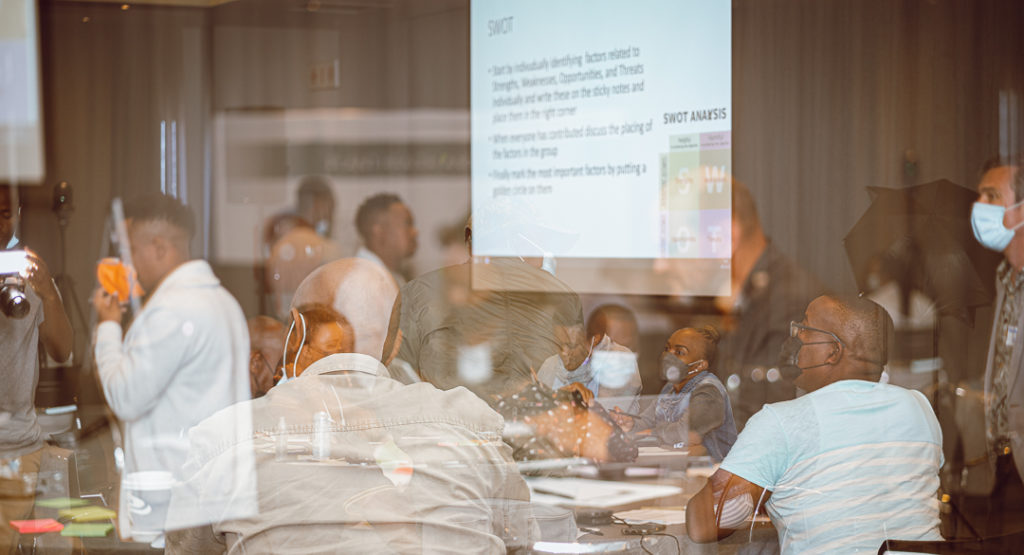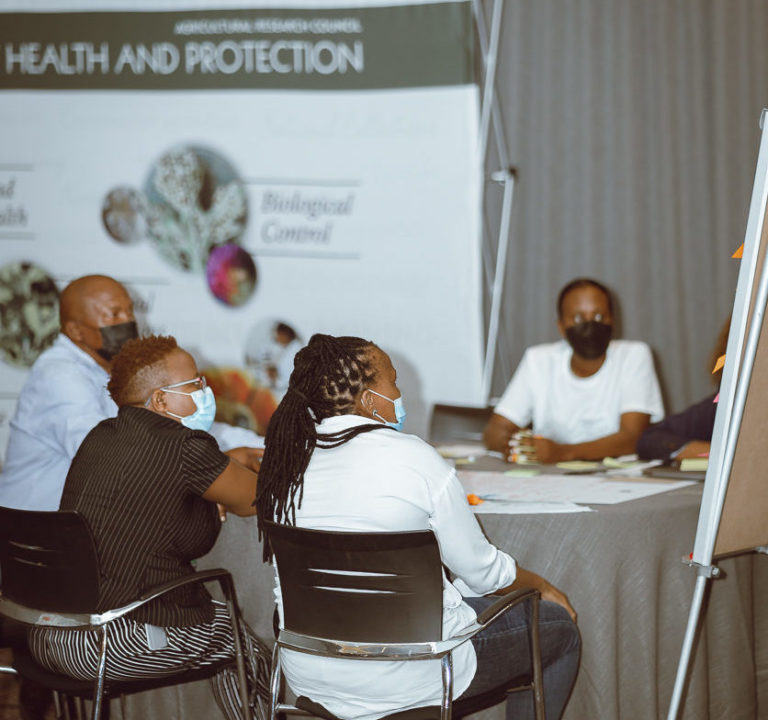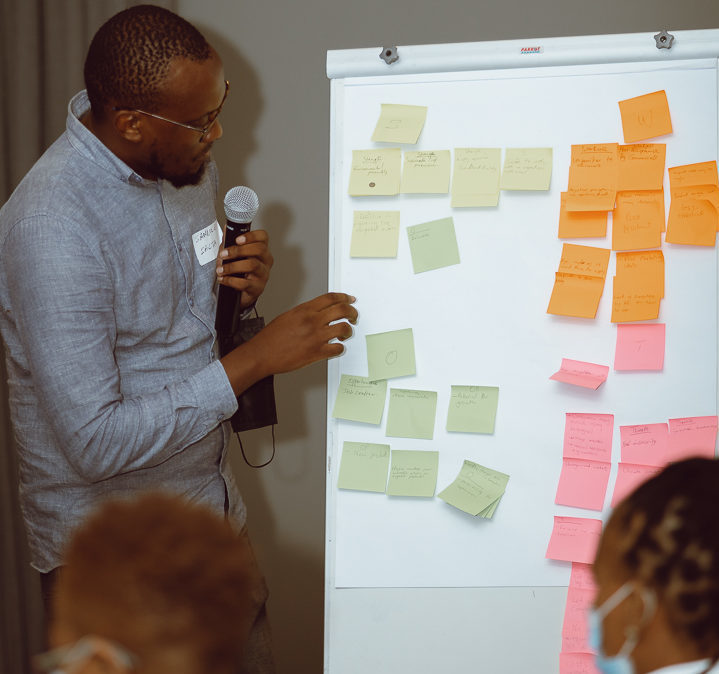Biologicals are potential alternatives to conventional agrochemicals to manage crop pests and pathogens. They are naturally derived products that can serve as biostimulants, biocontrol agents, resistance inducers or biofertilizers. Their use is steadily increasing in developed countries, leading to more environmentally sustainable plant protection methods. However, there is limited information on the status of biologicals in Sub-Saharan Africa (SSA), where smallholder farmers to a large degree lead agricultural production.
“The perception is that biologicals are bringing more value to the soil”, Sello Ntshoesane, Klippan Farm
In January 2022, researchers at the Swedish University of Agricultural Sciences organised a workshop on agricultural biologicals in Pretoria in collaboration with South African partner organisations. The objective was to raise awareness about biologicals and better understand the status and use of these products in South Africa. The workshop provided a platform to discuss possibilities and hurdles for using biologicals in South African agriculture. The participants representing different stakeholder groups (farmers, policymakers, extension officers, private companies, and researchers) helped identify the possibilities and hurdles by commenting on the value chain of biologicals in South Africa and through a SWOT analysis.
Paving the way for increased use of biologicals
Three invited speakers presented during the day. Andrew Bennett from SABO (South African Bioproducts Organisation) representing 47 members of both companies and universities in South Africa, told the audience how they were working to pave the way for increased use of biologicals in South Africa. He highlighted that the National Department of Agriculture, Land reform and Rural Development (DALRRD) regulations act 36 under which bioproducts in agriculture fall under is broad and that biologicals might benefit if this act were to be broken up into more specific ones.
“We need the biologicals to meet the existent set of control measures we have to maintain our high food productivity”, Andrew Bennett, SABO
SABO has established a code of ethics for the work with bioproducts. Professor Simon Letsoalo from the North-West University gave the participants an introduction to value chain analysis based on the framework of Professor Michael Porter whose theories are often used in this context. This led to a value chain analysis where the participants in groups looked at the biological markets in South Africa.


